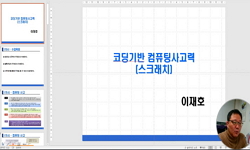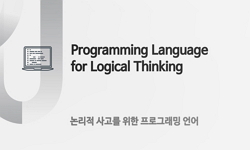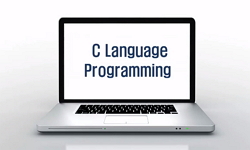최근 코로나19 상황으로 인한 비대면 교육의 확산으로 온라인 교수‧학습 및 평가 도구에 대한 관심이 높아지 고 있다. 도구의 효과적인 활용을 위해서는 학습자의 정의적, 인지적 변인 간의...
http://chineseinput.net/에서 pinyin(병음)방식으로 중국어를 변환할 수 있습니다.
변환된 중국어를 복사하여 사용하시면 됩니다.
- 中文 을 입력하시려면 zhongwen을 입력하시고 space를누르시면됩니다.
- 北京 을 입력하시려면 beijing을 입력하시고 space를 누르시면 됩니다.
https://www.riss.kr/link?id=A107019065
-
저자
장원영 (교육부)

- 발행기관
- 학술지명
- 권호사항
-
발행연도
2020
-
작성언어
Korean
-
주제어
온라인 저지 ; 프로그래밍 ; 자기 효능감 ; 몰입 ; 컴퓨팅 사고력 ; 논리적 사고력 ; Online judge ; Programming ; Self-efficacy ; Flow ; Computational thinking ; Logical thinking
-
KDC
370.714
-
등재정보
KCI등재
-
자료형태
학술저널
- 발행기관 URL
-
수록면
379-390(12쪽)
-
KCI 피인용횟수
3
- DOI식별코드
- 제공처
- 소장기관
-
0
상세조회 -
0
다운로드
부가정보
국문 초록 (Abstract)
최근 코로나19 상황으로 인한 비대면 교육의 확산으로 온라인 교수‧학습 및 평가 도구에 대한 관심이 높아지 고 있다. 도구의 효과적인 활용을 위해서는 학습자의 정의적, 인지적 변인 간의 구조적 영향력과 인과 관계에 대 한 규명이 필요하다. 본 연구는 ‘온라인 저지’를 활용하는 프로그래밍 교육에서 도구의 활용 횟수, 자기효능감, 몰입, 컴퓨팅 사고력, 논리적 사고력으로 구성된 연구 모형과 경쟁 모형을 설정하고, 모형의 적합도와 경로 분석 을 실시하였다. 분석 결과, ‘도구의 활용 횟수 → 자기효능감 → 몰입 → 논리적 사고력 → 컴퓨팅 사고력’에 이 르는 인과 관계를 규명하였고, 도구의 활용 횟수가 학습 동기를 거쳐 사고력에 영향을 미치는 경로 상에 ‘자기효 능감 → 몰입’의 이중 매개 효과, 또는 ‘몰입’의 단독 매개 효과를 확인하는 동시에 ‘몰입 → 자기효능감’의 이중 매개 변인으로는 도구의 활용 횟수가 사고력으로 발현되지 않음을 확인하였다. 한편, 동일한 경로 상에 ‘논리적 사고력 → 컴퓨팅 사고력’의 경로는 규명되었으나, ‘컴퓨팅 사고력 → 논리적 사고력’의 경로는 규명되지 않았다.
다국어 초록 (Multilingual Abstract)
Recently, interest in online teaching‧learning and evaluation tools has increased in the context of Covid-19. In order to use tools effectively, it is necessary to identify the structural influence and causal relationship between the learner's affec...
Recently, interest in online teaching‧learning and evaluation tools has increased in the context of Covid-19. In order to use tools effectively, it is necessary to identify the structural influence and causal relationship between the learner's affective and cognitive variables. In this study, to identify a causal relationship between motivation and thinking while using online judge, research and competing model were established and model fit/path analysis were performed. It was found that there was a linear causal relationship from tool usage, self-efficacy, flow, logical thinking, to computational thinking. It was confirmed that ‘self-efficacy → flow’, or ‘flow’ had mediating effect on the path from tool usage to thinking, and tool usage was not exerted to thinking through ‘flow → self-efficacy’. The causality of ‘logical thinking → computational thinking’ was identified on the path where tool usage affects thinking ability through learning motivation, but the causality of ‘computational thinking → logical thinking’ was not identified.
목차 (Table of Contents)
- 요약
- ABSTRACT
- 1. 서론
- 2. 이론적 배경
- 2.1. 온라인 저지
- 요약
- ABSTRACT
- 1. 서론
- 2. 이론적 배경
- 2.1. 온라인 저지
- 2.2. 학습동기: 자기 효능감과 몰입
- 2.3. 사고력: 논리적 사고력과 컴퓨팅 사고력
- 3. 연구 방법
- 3.1. 연구 대상
- 3.2. 연구 도구
- 4. 연구 모형의 설정과 확인적 요인 분석
- 4.1. 연구 모형의 설정
- 4.2. 자료의 기술 통계 및 상관 분석
- 5. 측정 모형의 확인적 요인 분석
- 6. 연구 모형의 적합도 및 경로 분석
- 6.1. 연구 모형과 경쟁 모형의 적합도 분석
- 6.2. 연구 모형의 경로 분석
- 6.3. 경쟁 모형의 경로 분석
- 7. 연구 결과 및 시사점
- 8. 결론
- 참고문헌
참고문헌 (Reference)
1 강명희, "학습자의 사전지식, 인지부하, 몰입, 학업성취도 간의 관계 규명" 교과교육연구소 13 (13): 369-391, 2009
2 이좌택, "컴퓨터 프로그래밍 학습에서 논리적 사고력 측정도구의 개발과 타당화 연구" 한국컴퓨터교육학회 7 (7): 15-25, 2004
3 김종운, "초등학생의 자기효능감, 스트레스와 학습몰입 및 학업성취도의 관계" 학습자중심교과교육학회 12 (12): 97-118, 2012
4 김성식, "자료구조 수업에서 온라인 자동평가용 문제해결 프로그래밍 문제은행 개발 및 적용" 한국컴퓨터교육학회 21 (21): 11-20, 2018
5 박병기, "자기조절학습의 복합적 측정도구 개발과 타당화: 동기조절 척도의 통합을 중심으로" 한국교육심리학회 19 (19): 455-476, 2005
6 박성익, "온라인 학습에서 학습몰입요인, 몰입수준, 학업성취 간의 관련성 탐구" 한국열린교육학회 14 (14): 93-115, 2006
7 장원영, "알고리즘 자동평가 시스템의 개발 및 적용: 프로그래밍 학습 효과 분석" 한국컴퓨터교육학회 17 (17): 45-57, 2014
8 심재권, "블록 프로그래밍 환경 기반 온라인 평가 시스템 개발" 한국컴퓨터교육학회 21 (21): 1-10, 2018
9 채유미, "몰입이론을 적용한 프로그래밍 WBI가 학습자의 몰입수준과 학업성취도에 미치는 영향" 한국컴퓨터교육학회 12 (12): 15-22, 2009
10 You, J. W., "The structural relationship among social factor, psychological mediators and motivational factor for enhancing learners’ engagement" Ewha Womans University 2011
1 강명희, "학습자의 사전지식, 인지부하, 몰입, 학업성취도 간의 관계 규명" 교과교육연구소 13 (13): 369-391, 2009
2 이좌택, "컴퓨터 프로그래밍 학습에서 논리적 사고력 측정도구의 개발과 타당화 연구" 한국컴퓨터교육학회 7 (7): 15-25, 2004
3 김종운, "초등학생의 자기효능감, 스트레스와 학습몰입 및 학업성취도의 관계" 학습자중심교과교육학회 12 (12): 97-118, 2012
4 김성식, "자료구조 수업에서 온라인 자동평가용 문제해결 프로그래밍 문제은행 개발 및 적용" 한국컴퓨터교육학회 21 (21): 11-20, 2018
5 박병기, "자기조절학습의 복합적 측정도구 개발과 타당화: 동기조절 척도의 통합을 중심으로" 한국교육심리학회 19 (19): 455-476, 2005
6 박성익, "온라인 학습에서 학습몰입요인, 몰입수준, 학업성취 간의 관련성 탐구" 한국열린교육학회 14 (14): 93-115, 2006
7 장원영, "알고리즘 자동평가 시스템의 개발 및 적용: 프로그래밍 학습 효과 분석" 한국컴퓨터교육학회 17 (17): 45-57, 2014
8 심재권, "블록 프로그래밍 환경 기반 온라인 평가 시스템 개발" 한국컴퓨터교육학회 21 (21): 1-10, 2018
9 채유미, "몰입이론을 적용한 프로그래밍 WBI가 학습자의 몰입수준과 학업성취도에 미치는 영향" 한국컴퓨터교육학회 12 (12): 15-22, 2009
10 You, J. W., "The structural relationship among social factor, psychological mediators and motivational factor for enhancing learners’ engagement" Ewha Womans University 2011
11 Sherer, M., "The Self-Efficacy scale: construction and validation" 51 : 663-671, 1982
12 Choi, Y. H., "The Relationships Between Children’s Attribution Style and Learned Helpessness‧Self-Efficacy" Korea National University of Education 2001
13 Kim, J. E., "The Effects of Physical Computing-Based Programming Education on Computational Thinking, Learning Flow, and Recognition concerning SW" Ajou University 2018
14 Han, S. J., "The Effects of PBL-based App Programming Education on the Specialized High School Students' Learning Attitude and Computational Thinking" Korea National University of Education 2018
15 Marks, H. M., "Student engagement in instructional activity:Patterns in the elementary, middle, and high school years" 37 (37): 153-184, 2000
16 West, S. G., "Structural equation modelling: Concepts, issues, and applications" Sage Publications 1995
17 Bae, B. Y., "Structural equation modeling with Amos 24" Book Publishing Cheonglam 2017
18 Woo, J. P., "Structural equation model concepts and understanding" Hannalae 2014
19 Noh, K. S, "Statistical analysis of papers you know and use properly SPSS & AMOS" Hanit Academy 2019
20 Ministry of Education, "Software Education Operating Guide" Ministry of Education in Korea 2015
21 Bandura, A., "Social foundations of thought and action: A social cognitive theory" Prectice Hall 1986
22 Bandura, A., "Self-efficacy: Toward a unifying theory of behavioral change" 84 : 191-215, 1977
23 Bandura, A., "Self-efficacy: The exercise of control" W. H. Freemana and Company 1997
24 Zimmerman, B. J., "Self-efficacy in changing societies" Cambridge University Press 1995
25 Schunk, D. H., "Self-efficacy and academic motivation" 26 : 207-231, 1991
26 ISTE, "Operational Definition of Compuatational Thinking for K-12 Eduction" 2011
27 Hair, J., "Multivariate data analysis" Prentice-Hall, Inc 2010
28 Malhotra N. K., "Marketing Research an Applied Orientation" Pearson Publishing 2011
29 Bandura, A., "Handbook of personality" Guilford Publications 154-196, 1999
30 Park, K. S., "Effect of self-determination motivation and self-efficacy on student engagement : the mediating effects of subjects interest" Ewha Womans University 2015
31 Jackson, S. A., "Development and Validation of a Scale to Measure Optimal Experience: The Flow State Scale" 18 : 17-35, 1996
32 Csikszentmihalyi, M., "Beyond boredom and anxiety" Jossey Bass 1975
33 Lee, J. H., "Analysis of the structural relationships among self-determination motivation to learn, metacognition, self-directed learning ability, learning flow, and school achievement" Chungbuk National University 2009
34 Park, J. Y., "An Investigation of the Structural Relationships among Students’ Characteristics, Flow, and Learning Effects in a SCRATCH Programming Course for Elementary School Students" Ewha Womans University 2015
35 Jeong, T. H., "A study on motivation determinants and effects of Out-Of-School learning time investment" Korea University 1987
36 KERIS, "2017 Software Eucation Effectiveness Measurement tool Development Research" Korea Education and Research Information Service 2018
동일학술지(권/호) 다른 논문
-
인공지능교육 역량 강화를 위한 교원 연수 프로그램과 교사 요구분석
- 한국정보교육학회
- 전인성
- 2020
- KCI등재
-
- 한국정보교육학회
- 이용배
- 2020
- KCI등재
-
중학교 정보교과에서 짝 프로그래밍이 4Cs 향상에 미치는 영향
- 한국정보교육학회
- 박윤미
- 2020
- KCI등재
-
R 매핑을 이용한 인공지능의 교육적 활용 탐색 - 국외 문헌 분석을 중심으로 -
- 한국정보교육학회
- 김형욱
- 2020
- KCI등재
분석정보
인용정보 인용지수 설명보기
학술지 이력
| 연월일 | 이력구분 | 이력상세 | 등재구분 |
|---|---|---|---|
| 2022 | 평가예정 | 재인증평가 신청대상 (재인증) | |
| 2019-01-01 | 평가 | 등재학술지 유지 (계속평가) |  |
| 2016-01-01 | 평가 | 등재학술지 유지 (계속평가) |  |
| 2012-01-01 | 평가 | 등재학술지 유지 (등재유지) |  |
| 2009-01-01 | 평가 | 등재학술지 선정 (등재후보2차) |  |
| 2008-01-01 | 평가 | 등재후보 1차 PASS (등재후보1차) |  |
| 2007-01-01 | 평가 | 등재후보학술지 유지 (등재후보1차) |  |
| 2006-01-01 | 평가 | 등재후보 1차 FAIL (등재후보1차) |  |
| 2005-01-01 | 평가 | 등재후보학술지 유지 (등재후보1차) |  |
| 2004-01-01 | 평가 | 등재후보학술지 유지 (등재후보1차) |  |
| 2002-01-01 | 평가 | 등재후보학술지 선정 (신규평가) |  |
학술지 인용정보
| 기준연도 | WOS-KCI 통합IF(2년) | KCIF(2년) | KCIF(3년) |
|---|---|---|---|
| 2016 | 1.5 | 1.5 | 1.45 |
| KCIF(4년) | KCIF(5년) | 중심성지수(3년) | 즉시성지수 |
| 1.41 | 1.25 | 1.991 | 0.38 |




 ScienceON
ScienceON eArticle
eArticle







